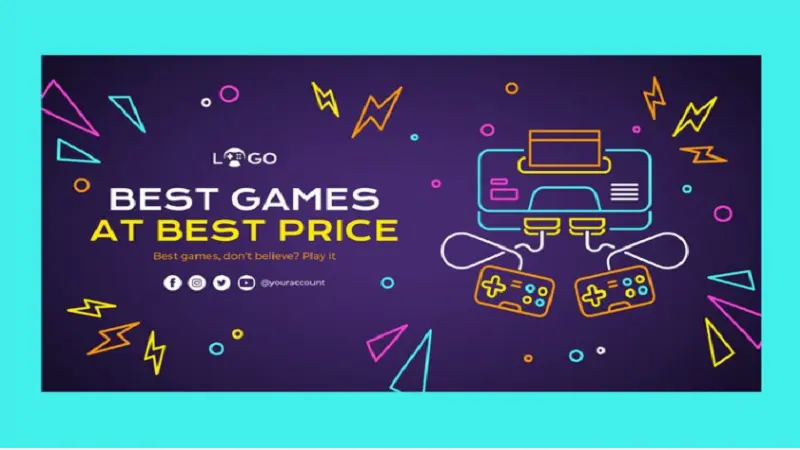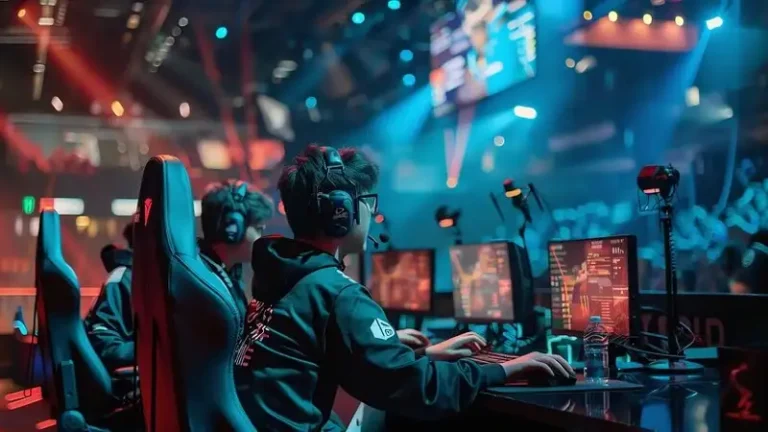Game Event Under Growthgameline
The gaming industry is one of the fastest-growing sectors in entertainment, with revenues surpassing those of movies and music combined. Game events contribute to this growth, which play a pivotal role in engaging players and expanding the gaming community. One emerging trend within this domain is the concept of the “Game Event Under GrowthGameLine.” This article will explore this keyword in depth, discussing its significance, potential, and future for the gaming world.
Table of Contents
ToggleWhat is GrowthGameLine?
Before diving into the specifics of game events under GrowthGameLine, it is essential to understand what GrowthGameLine represents. GrowthGameLine is a concept or strategy to foster the development and expansion of a game or gaming community. It involves planned, structured events designed to boost player engagement, retention, and acquisition. These events can range from in-game activities and challenges to real-world tournaments and conventions. game event under growthgameline
GrowthGameLine focuses on creating a sustained momentum that ensures the game’s ecosystem grows organically while maintaining player interest and enthusiasm. This strategy is particularly crucial in today’s competitive gaming market, where player attention spans are short, and the lure of new games is constant.
The Importance of Game Events
Game events are vital for several reasons. They offer a break from the regular gameplay, introducing fresh challenges and rewards that reinvigorate player interest. Events can also serve as a platform for developers to showcase new content, features, or updates, keeping the game dynamic and evolving . game event under growthgameline
- Player Engagement: Regular events keep players coming back, reducing churn rates. Engaged players are more likely to invest time and money into the game, contributing to its financial success.
- Community Building: Events often foster a sense of community among players. Whether it’s through cooperative missions, competitive tournaments, or social gatherings, these activities help build a loyal and active player base.
- Marketing and Publicity: High-profile events attract media attention and can serve as a powerful marketing tool. They create buzz around the game, drawing in new players and keeping it in the public eye.
- Revenue Generation: Many events offer exclusive items, skins, or other in-game purchases. Limited-time offers create a sense of urgency, encouraging players to spend money. game event under growthgameline
Types of Game Events Under GrowthGameLine
In-Game Events
In-game events are activities or challenges that occur within the game world. These can be periodic events tied to holidays or special occasions, or random surprises to keep players on their toes. Examples include:
- Seasonal Events: These align with real-world holidays like Halloween, Christmas, or New Year’s. They often introduce themed content, such as special quests, limited-time items, or unique game modes.
- Competitive Tournaments: Regularly scheduled tournaments where players compete for rankings, prizes, or bragging rights. These events can be single-player or team-based and may culminate in grand championships.
- Collaborative Missions: Events that require players to work together to achieve a common goal. These can help build camaraderie and encourage teamwork within the player community.
- Special Quests and Challenges: Unique missions or challenges that provide exclusive rewards. These can be time-limited, adding an element of urgency and excitement. game event under growthgameline
Real-World Events
Real-world events extend the gaming experience beyond the virtual world, fostering a deeper connection between players and the game. These include:
- Conventions and Expos: Large gatherings where players can meet developers, attend panels, and participate in live demos or tournaments. Examples include E3, PAX, and Gamescom.
- Community Meetups: Smaller, localized events where players can meet face-to-face, discuss the game, and participate in activities.
- E-Sports Tournaments: Professional-level competitions with substantial prizes and media coverage. These events elevate the game to a sport, attracting a wide audience and significant sponsorship.
- Promotional Tours: Roadshows or tours where developers travel to different locations to promote the game, engage with players, and offer exclusive content or merchandise.
Implementing GrowthGameLine Strategies
Planning and Scheduling
Effective GrowthGameLine strategies require meticulous planning and scheduling. This involves:
- Identifying Key Periods: Pinpointing times when player activity is highest, such as weekends, holidays, or after major updates.
- Balancing Frequency: Ensuring events are frequent enough to keep players engaged but not so frequent that they feel overwhelmed or lose their novelty.
- Coordinating Themes: Aligning events with themes or narratives within the game to enhance immersion and storytelling.
Content Creation
Creating compelling content is crucial for the success of any game event. This involves:
- Developing Unique Rewards: Offering exclusive items, skins, or abilities that can only be obtained through participation in the event.
- Crafting Engaging Storylines: Building narratives around events that draw players in and make the activities feel meaningful and connected to the game world.
- Incorporating Player Feedback: Listening to player feedback to refine and improve event content, ensuring it meets the community’s desires and expectations.
Promotion and Marketing
Effective promotion is essential to maximize participation and engagement. Strategies include:
- Using Social Media: Leveraging platforms like Twitter, Facebook, and Instagram to create buzz and share information about upcoming events.
- In-Game Notifications: Providing players with timely reminders and updates within the game itself.
- Collaborating with Influencers: Partnering with popular streamers or content creators to reach a broader audience and generate excitement.
Analytics and Feedback
Post-event analysis is critical for continuous improvement. This involves:
- Collecting Data: Gathering metrics on player participation, engagement, and spending during the event.
- Evaluating Success: Assessing the event’s impact on player retention, acquisition, and revenue.
- Incorporating Feedback: Using player feedback and data insights to refine future events, addressing any issues and enhancing the overall experience.
Case Studies
Fortnite’s In-Game Concerts
Fortnite, developed by Epic Games, has revolutionized in-game events with its live concerts. Featuring artists like Travis Scott and Marshmello, these events attract millions of players, offering a unique blend of gaming and entertainment. These concerts are meticulously planned, with spectacular visuals and exclusive in-game rewards, ensuring high engagement and media coverage.
Pokémon GO Community Days
Niantic’s Pokémon GO has successfully implemented real-world events with its monthly Community Days. These events encourage players to go outside and interact with the game and each other. Featuring special Pokémon spawns, bonuses, and limited-time moves, Community Days boost player activity and foster a strong sense of community. game event under growthgameline
League of Legends World Championship
Riot Games’ League of Legends World Championship is a premier e-sports event, drawing millions of viewers worldwide. The tournament features top teams competing for substantial prizes, with extensive media coverage and sponsorship deals. The event’s success has elevated League of Legends to a global e-sport, showcasing the potential of high-profile competitive events.
The Future of Game Events Under GrowthGameLine
As the gaming industry continues to evolve, the importance of game events under GrowthGameLine will only grow. Future trends may include:
- Virtual Reality (VR) and Augmented Reality (AR) Events: With the rise of VR and AR, game events may become even more immersive, offering players new ways to interact with the game world and each other.
- Cross-Platform Integration: Events that seamlessly integrate across different gaming platforms, allowing players to participate regardless of their preferred device.
- Dynamic, Player-Driven Events: Utilizing AI and player data to create dynamic events that adapt to player behavior and preferences, offering a personalized experience.
- Greater Community Involvement: Increasing player involvement in event planning and execution, fostering a more engaged and invested community.
Conclusion
Game events under GrowthGameLine represent a powerful tool for driving player engagement, building community, and boosting revenue. By meticulously planning and executing a variety of in-game and real-world events, developers can create a dynamic and evolving gaming experience that keeps players coming back for more. As the gaming industry continues to innovate, the potential for growth through well-crafted events remains immense, promising an exciting future for both players and developers alike. game event under growthgameline


